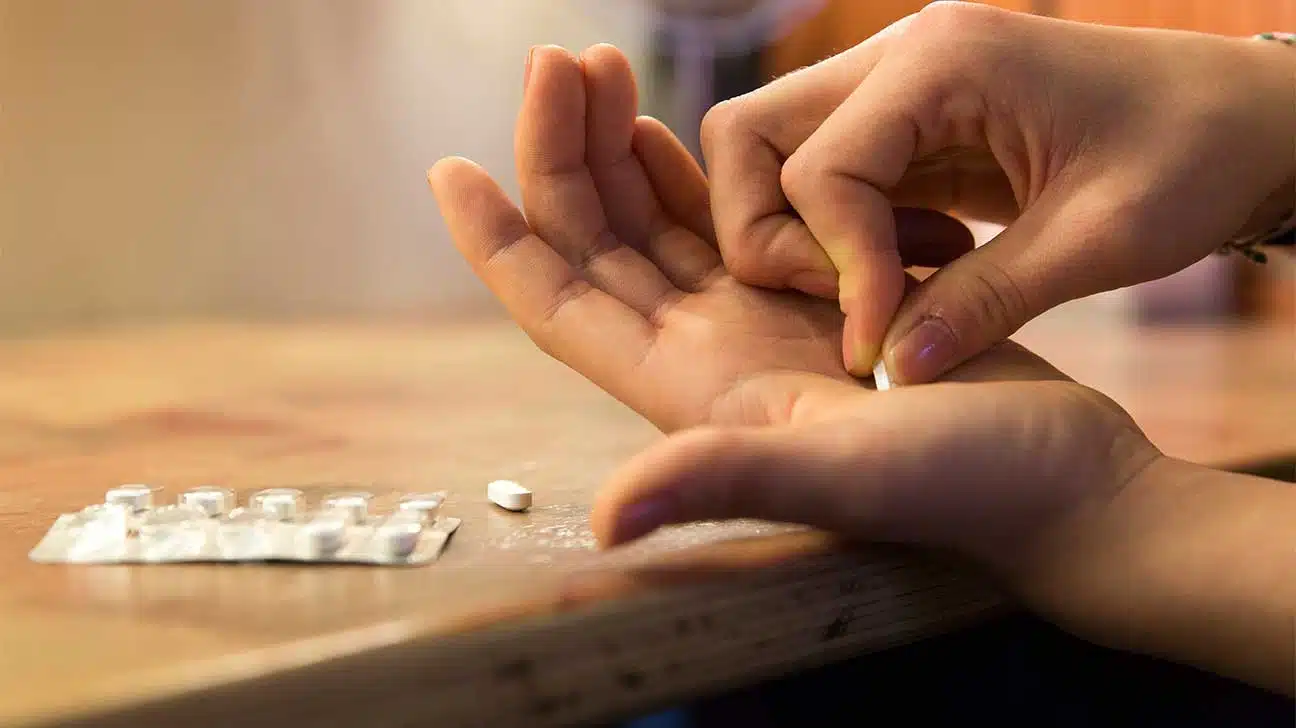
Ritalin is a central nervous system (CNS) stimulant that treats attention-deficit/hyperactivity disorder (ADHD). When ingested, Ritalin’s effects may last for several hours.
Due to its addictive qualities and potentially dangerous side effects, the Drug Enforcement Agency (DEA) has deemed Ritalin a Schedule II controlled substance.
The length of a drug’s effects will differ based on a number of variables including how long Ritalin has been used, the amount of Ritalin taken, genetic factors, and more.
Duration Of Ritalin’s Effects
Methylphenidate, also known by its brand name Ritalin, is commonly abused as a cognitive enhancement drug and for its aphrodisiac and euphoriant properties.
These effects are tied to Ritalin’s role as a dopamine/norepinephrine reuptake inhibitor, a drug that acts on specific neurotransmitters to increase concentrations of both hormones.
Typically, this prescription medication is prescribed by healthcare providers in an oral pill form. The total duration of Ritalin’s effects depends on the formulation of the drug.
People who engage in methylphenidate abuse may experience serious side effects including changes in behavior as well as a potentially life-threatening drug overdose.
Immediate-Release Ritalin
Methylphenidate comes in an immediate-release tablet that, when ingested, will last between two and five hours.
Extended-Release Ritalin
The sustained-release version of methylphenidate, or Ritalin-SR, may last approximately six to eight hours and is intended to be taken once a day in the morning.
While both forms of Ritalin have a relatively short half-life, the long-acting version will take longer to metabolize.
Detection Times For Ritalin In The Body
After the initial effects of Ritalin have worn off, the drug continues to circulate through the body. There are a variety of ways to drug test for Ritalin metabolites using different sample types.
Drug screening methods include:
- urine tests: up to three days
- blood tests: 12 to 24 hours after last use
- saliva tests: up to three days
- hair follicle tests: up to 90 days
People who habitually abuse Ritalin may test positive for methylphenidate metabolites for a longer period.
Factors That Influence How Long A Ritalin High Lasts
Below are some of the factors that contribute to the duration and intensity of a Ritalin high.
Factors that affect a Ritalin high:
- body mass
- age
- metabolism
- genetics
- method of abuse (i.e. plugging or snorting Ritalin)
- tolerance level
- hydration level
- food intake
- polysubstance abuse (i.e. using Ritalin with cocaine or other substances)
- type of Ritalin ingested
People who abuse Ritalin may be tempted to mix their medication with alcohol in order to elongate the methylphenidate high by forcing their liver to metabolize the alcohol first.
This combination is a particularly dangerous form of substance abuse and should be avoided to prevent potentially life-threatening consequences.
Common Side Effects Of Ritalin Abuse
The desired effects of methylphenidate abuse can be felt within minutes, but those who take the drug recreationally can quickly develop tolerance and physical dependence on the drug.
Short-Term Effects
In the short term, the effects of Ritalin typically include increased alertness, impulsivity, euphoric sensations, talkativeness, hyperactivity, and suppressed appetite.
Long-Term Effects
Misusing methylphenidate over a period of time may result in a number of negative physical and psychological effects.
These include:
- delusions
- hallucinations
- psychosis
- seizures
- weight loss
- suicidal thoughts
- changes in mood
- impaired judgment
- depression
Chronic drug abuse can eventually result in a Ritalin overdose. Although this outcome is uncommon, overdose is more likely when Ritalin is mixed with other substances.
How Long Ritalin Withdrawal Symptoms Last
When methylphenidate is suddenly removed from the system, a person will probably experience a range of unpleasant withdrawal symptoms.
Ritalin withdrawal symptoms can include fatigue, sleep problems, irritability, depression, drastic mood swings, and dangerous changes in heart rate or blood pressure.
In an addiction treatment center, people can be slowly tapered off of stimulant medications over time so their withdrawal is more comfortable.
Treatment Programs For Amphetamine Abuse
If you or a loved one are addicted to Ritalin or other types of central nervous system stimulants, a rehab center can provide the evidence-based services needed to fully recover.
Treatment options may include:
- Ritalin detox
- medication-assisted treatment (MAT)
- inpatient rehab programs
- outpatient treatment
- dual diagnosis treatment for co-occurring mental health disorders
- support groups for adolescents
- general healthcare services
Find Treatment For Stimulant Drug Abuse Today
Call our helpline for more information on Ritalin addiction, including how long the drug lasts in the body. Our team can answer your questions or provide referrals for medical advice.
Addiction Resource aims to provide only the most current, accurate information in regards to addiction and addiction treatment, which means we only reference the most credible sources available.
These include peer-reviewed journals, government entities and academic institutions, and leaders in addiction healthcare and advocacy. Learn more about how we safeguard our content by viewing our editorial policy.
- National Institute on Drug Abuse (NIDA)
https://nida.nih.gov/publications/drugfacts/prescription-stimulants - National Institute on Drug Abuse (NIDA)
https://nida.nih.gov/sites/default/files/drugfacts_stimulantadhd_1.pdf - National Institute of Health (NIH)
https://www.ncbi.nlm.nih.gov/pmc/articles/PMC181133/ - The British Medical Journal (BMJ)
https://www.ncbi.nlm.nih.gov/pmc/articles/PMC1119521/ - U.S. Food and Drug Administration (FDA)
https://www.accessdata.fda.gov/drugsatfda_docs/label/2010/021284s018lbl.pdf


